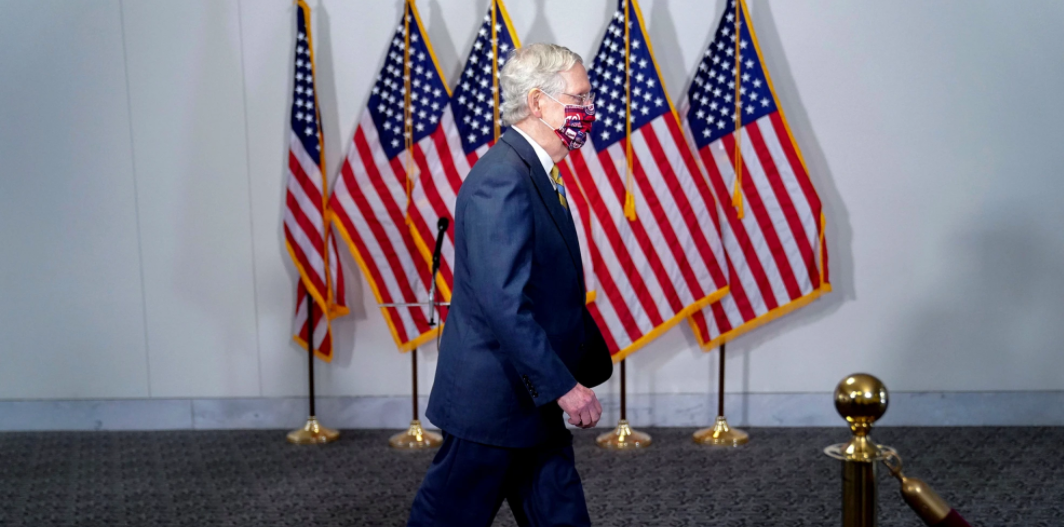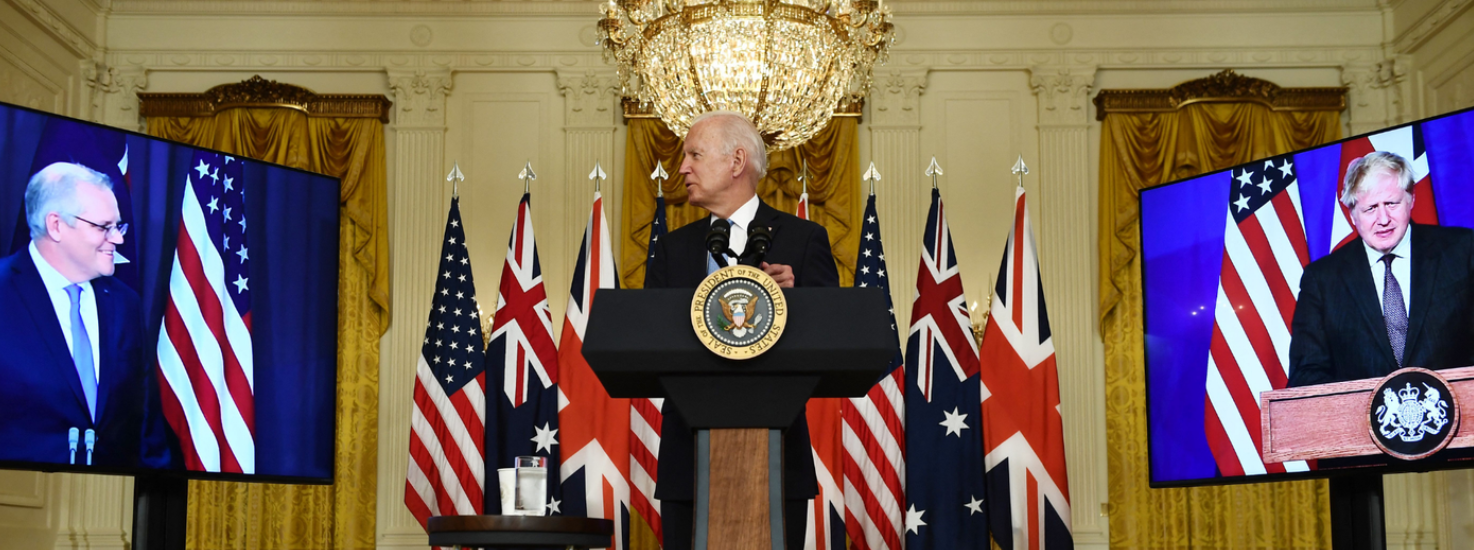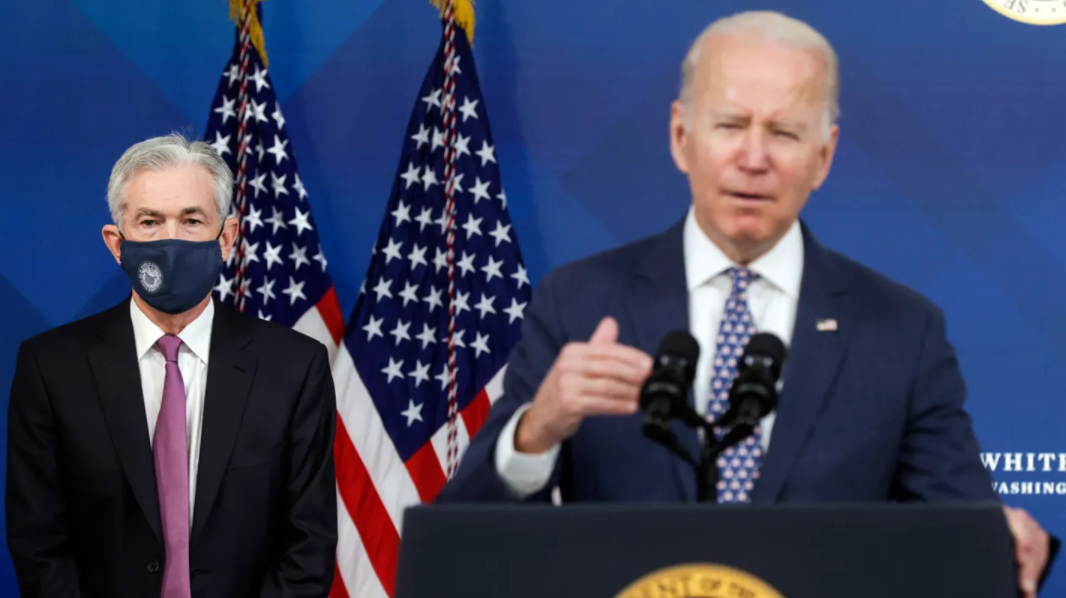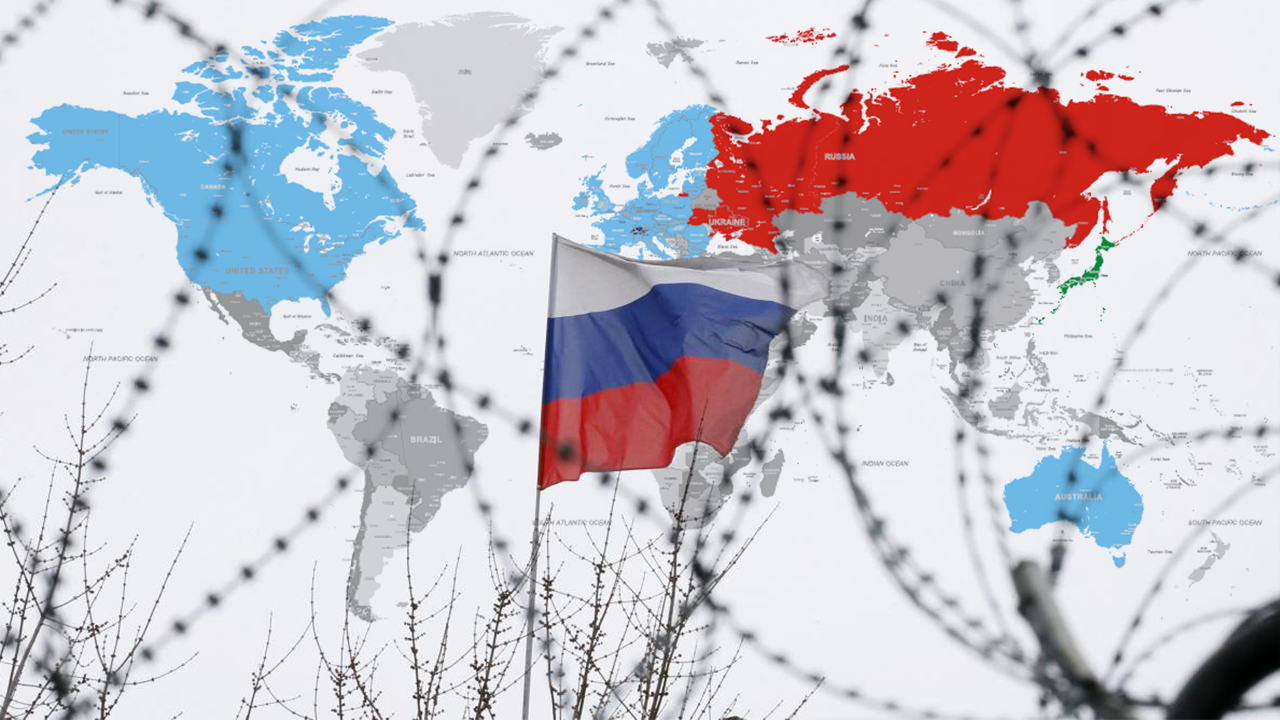Thursday / October 7
McConnell’s proposal
US Senate Minority Leader Mitch McConnell proposed to Democrats on Wednesday an offer to let the US debt ceiling be suspended on a short-term basis in order to avoid a national default and economic crisis.
“To protect the American people from a near-term Democrat-created crisis, we will also allow Democrats to use normal procedures to pass an emergency debt limit extension at a fixed dollar amount to cover current spending levels into December,” McConnell said in a statement posted to Twitter.
“This will moot Democrats’ excuses about the time crunch they created and give the unified Democratic government more than enough time to pass standalone debt limit legislation through reconciliation,” the Kentucky Republican added in his social media post.
McConnell’s proposal came as President Joe Biden and Democratic leaders in Congress increased pressure on Republicans to act with them on the debt ceiling.
McConnell’s offer of interim measures will ease some of the pressure on both sides until October 18.
Most economists, and President Biden, say US default will spell an economic disaster. Treasury Secretary Janet Yellen warned that she “anticipates” an economic recession if that happens.
US stocks
Stocks bounced back Wednesday from losses as McConnell appeared to be getting closer to Democrats.
The Dow Jones Industrial Average rose 103 points, recuperating a loss of 459 points. The S&P 500 closed the day up 0.4% after falling 1.27% at the session low. The tech-focused Nasdaq Composite saw gains of 0.5% after falling as much as 1.2% at the start of the session.
In the emerging market, with tech stocks being bought from the dips, Microsoft rose 1.5%, Amazon gained 1.3%. Google’s parent company Alphabet made 1.1%.
Xi-Biden meeting
The White House announced that an agreement has been reached “in principle” to hold a virtual meeting between US President Biden and his Chinese President Xi Jinping before 2021 ends.
The White House announcement followed a six-hour meeting in Zurich today between Biden’s national security adviser, Jake Sullivan, and his Chinese counterpart, Yang Jiechi.
The Zurich talks are the highest-level meeting between US and Chinese officials since the cold Alaska summit in March, when Yang scolded Sullivan and Secretary of State Antony Blinken for minutes on in front of the cameras for challenging Beijing on human rights and other issues.
According to the US media, Sullivan raised concerns about issues in which the US and China have mutual interests in cooperation, such as climate change, and Beijing’s human rights abuses in Xinjiang, Hong Kong, and military activities in the South China Sea.
According to Xinhua, China’s official media, Yang said that any conflict between China and the United States would cause serious harm to both countries and the world, and that “China and the United States agreed to take steps to properly manage differences and avoid conflict,” he added.
Fuel crisis
U.S. Secretary of Energy Jennifer Granholm announced Wednesday that “all toold are on the table” in response to rising gasoline prices, bolstering the possibility of the government’s move to release crude oikl from the U.S. strategic oil reserve (SPR).
With the average US gas price fluctuating at $3.19 per gallon, a seven-year high, the White House fears the rise in fuel costs could undermine its political prospects ahead of next year’s midterm elections.
Granholm also did not rule out a ban on crude oil exports, according to Financial Times: “That’s a tool that we have not used, but it is a tool as well.”
The US strategic oil reserve, located in the south near the Gulf of Mexico, is the world’s largest emergency crude oil stockpile. The reserve, managed by the U.S. Department of Energy, contained 617.8 million barrels of oil last week — that’s roughly equivalent to a month’s worth of U.S. demand for petroleum products.





